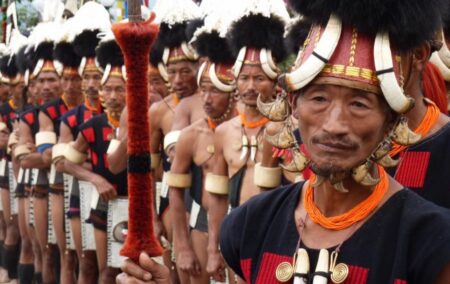The recent discovery that a 19th-Century skull from the north-eastern Indian state of Nagaland was up for auction in the United Kingdom has prompted renewed calls for the repatriation of ancestral remains removed during the colonial era.
According to the BBC, the horned skull of a Naga tribesman was among thousands of items that European colonial administrators had collected from the state.
The item, which is from a Belgian collection, was advertised for auction by The Swan at Tetsworth, the UK-based antique centre as part of a “Curious Collector Sale”, and valued between £3,500 and £4,000. Other items in the sale included shrunken heads from the Jivaro people of South America and skulls from the Ekoi people of West Africa.
The auction house withdrew the sale following protests by Naga scholars and experts. The chief minister of Nagaland wrote to the Indian foreign ministry describing the intended sale as “dehumanising” and “continued colonial violence upon our people”.
The advertisement for the controversial sale was spotted by Ellen Konyak, a member of the Naga Forum for Reconciliation (NFR) which is making efforts to bring these human remains back home.
The BBC quotes Konyak as saying: “To see that people are still auctioning our ancestral human remains in the 21st Century was shocking. It was very insensitive and deeply hurtful.”
Naga scholars and experts protested about the sale. The chief minister of Nagaland, Konyak’s home state, wrote a letter to the Indian foreign ministry describing the act as “dehumanising” and “continued colonial violence upon our people”.
[Image: https://www.flickr.com/photos/rodeime/14117540068]

